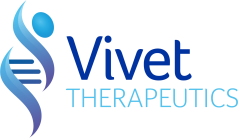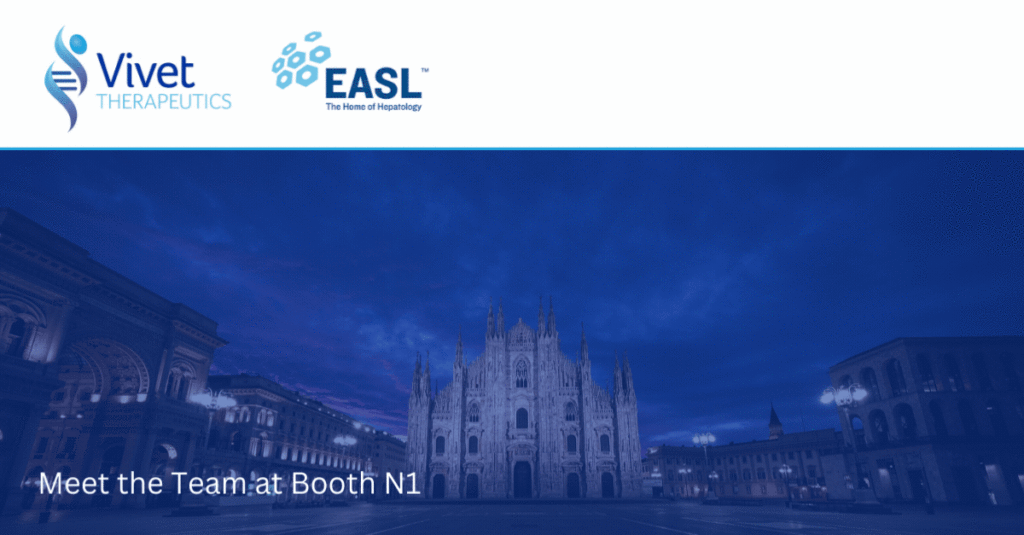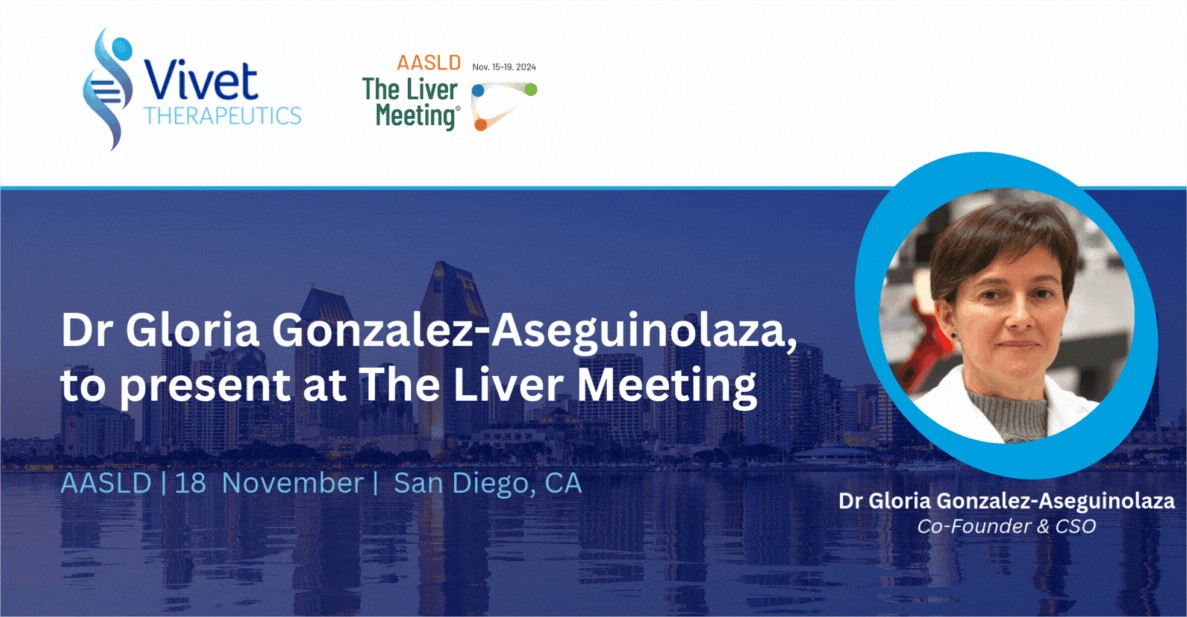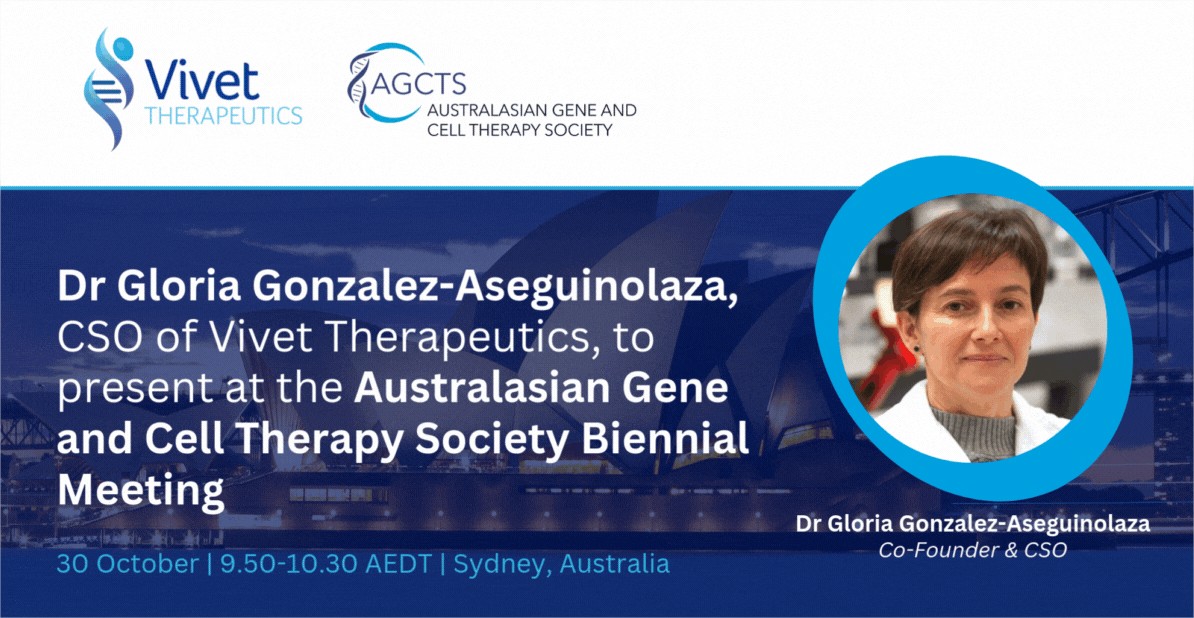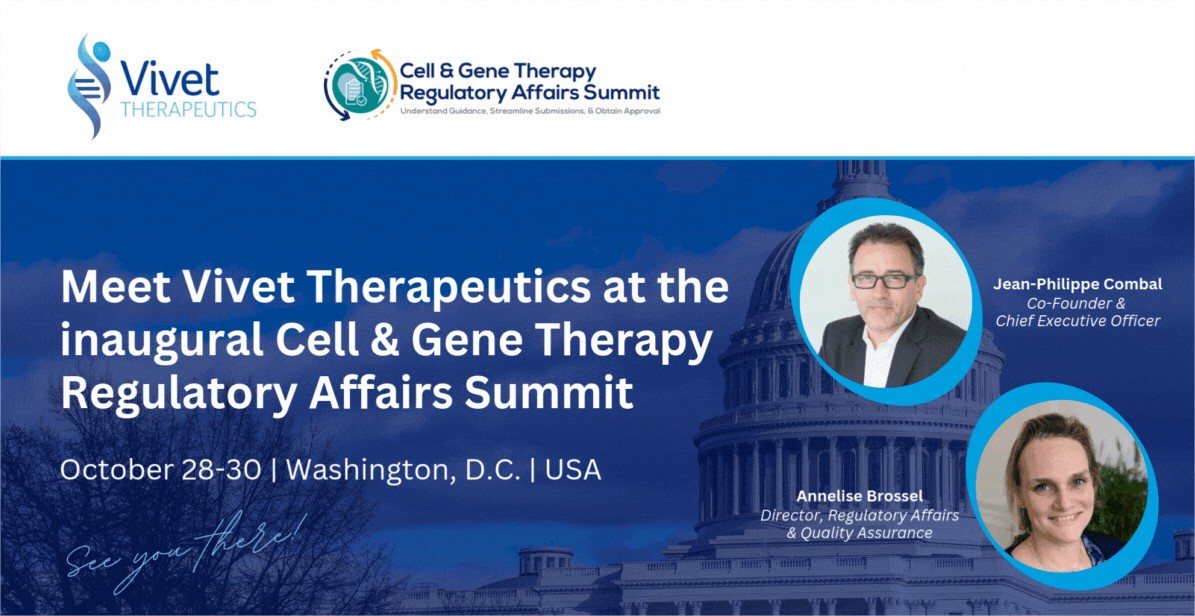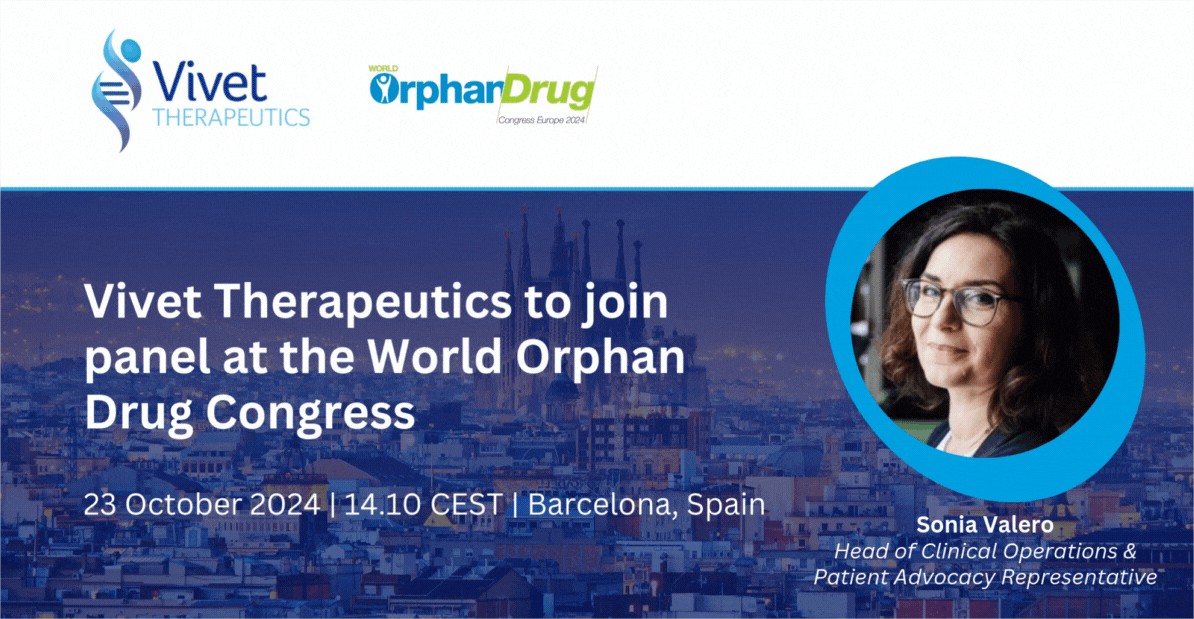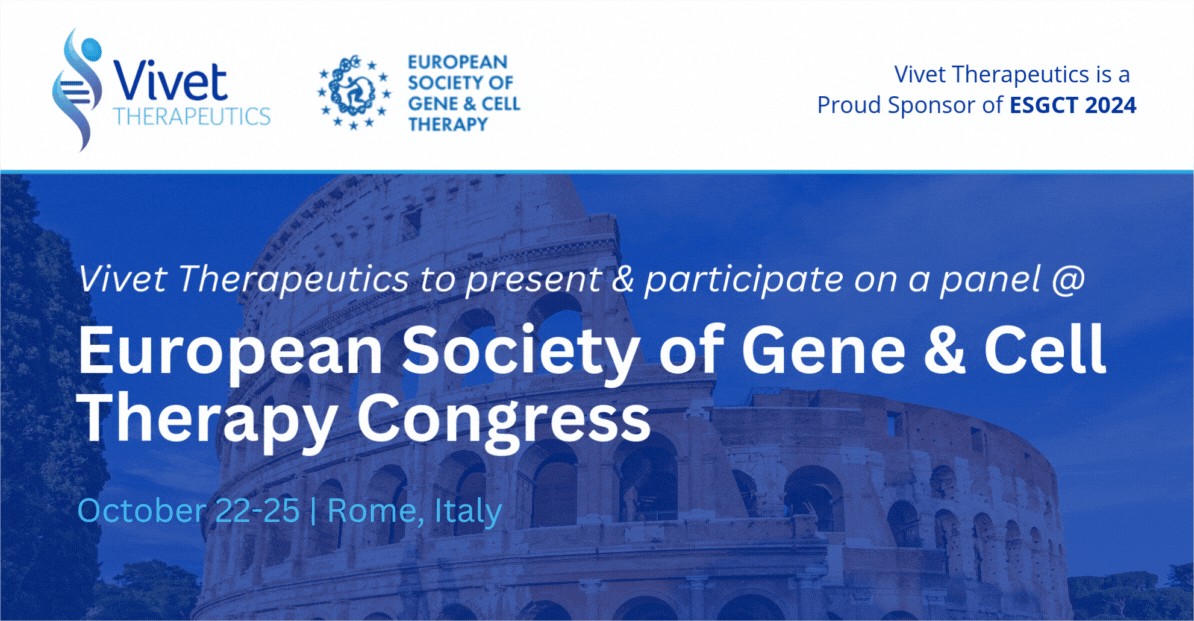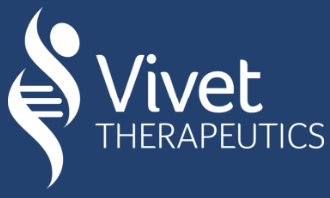Vivet Therapeutics Presents Interim Data from its Phase 1/2 GATEWAY Trial for the Treatment of Wilson Disease at EASL Congress 2024
VTX-801 increased ceruloplasmin ferroxidase activity and improved liver histology
Encouraging safety and tolerability with no serious adverse events reported
Paris, France, June 5, 2024 – Vivet Therapeutics (“Vivet”), a clinical stage biotech company developing novel and long-lasting gene therapies for rare inherited liver metabolic disorders, today announces the presentation of interim data on its international Phase 1/2 GATEWAY trial, evaluating the safety, pharmacodynamics, and efficacy of its lead program, VTX-801 for the treatment of Wilson Disease (WD) at the EASL Congress 2024, held in Milan, Italy.
The poster presentation by Ass. Professor, Thomas Damgaard Sandahl entitled ‘Interim safety results of the ongoing international phase I/II GATEWAY gene therapy trial with VTX-801 conducted in adult patients with Wilson Disease’, detailed findings from Cohort 1 patients in the ongoing GATEWAY trial treated with Vivet’s lead program, VTX-801, a recombinant adeno-associated viral vector (rAAV) carrying a shortened ATP7B gene under the control of a liver-specific promoter for the treatment of Wilson Disease.
GATEWAY is a first-in-human, open label, 5-year follow-up, single dose escalation study being conducted to assess the safety, pharmacodynamics, and efficacy of VTX-801, with the objective of providing long lasting effects after a single intravenous administration in patients living with WD. Following evaluation, standard of care treatment may be withdrawn at 3- or 9-months post-infusion in VTX-801 responders; the response is defined based upon intravenously injected 64Cu PK profiles, which is considered to reflect the level of restoration of copper metabolism.
Data presented at EASL is outlined below for the two Cohort 1 patients who received a single intravenous injection of VTX-801:
- Encouraging safety and tolerability, with no serious adverse events reported; an infusion associated reaction was managed with symptomatic treatment, patient discharged the next day as planned; transient, mild liver enzymes elevations occurred and managed in line with other systemic AAV gene therapies
- Increases from baseline of ceruloplasmin ferroxidase activity observed, demonstrating transgene activity in both patients treated
- Liver biopsy results showing normalisation of liver fibrosis and iron accumulation scores at year 1 post treatment
Jean-Philippe Combal, Co-Founder & Chief Executive Officer at Vivet Therapeutics, said “Existing life-long oral treatments for WD are constraining and associated with side effects, leading to poor adherence and in some cases, severe WD complications. These interim data presented at EASL are encouraging for the development of an alternative treatment option for WD, following completion of Cohort 1, which demonstrated promising safety, tolerability and early pharmacodynamic changes. In Cohort 2, we have dosed the first patient with VTX-801 at an escalated dose level and we hope for a more robust pharmacodynamic response at a much higher magnitude. We are pleased so far with the progress of the study and continue
with the perspective of developing VTX-801 as a potential disease-modifying treatment for people living with WD.”
Further details on the GATEWAY trial can be found on Clinical Trials, under identifier NCT04537377.
Study authors:
- D. SANDAHL1, W. M. LEE2, A. ALA 3, R. P. GONZALEZ-PERALTA 4, V. MEDICI 5, F. K. ASKARI 6, S. RUDNICK 7, U. M. LAUER 8, H. H. SCHMIDT 9, S. VALERO10, G. GONZALEZ-ASEGUINOLAZA11, J.-P. COMBAL 10, L. d’ANTIGA 12, B. BENICHOU10 and M. L. SCHILSKY 13
1Department of Hepatology and Gastroenterology, Aarhus University Hospital, Denmark. 2Division of Digestive and Liver Diseases, University of Texas Southwestern Medical Center, Dallas, TX, USA; 3Royal Surrey County Hospital, Guilford, Surrey GU2 7XX, United Kingdom; 4AdventHealth for Children, AdventHealth Transplant Institute, Orlando, Florida, USA; 5Division of Gastroenterology and Hepatology, University of California Davis, Sacramento, California, USA; 6Department of Medicine, University of Michigan, Ann Arbor, MI, USA; 7Department of Internal Medicine, Section on Gastroenterology and Hepatology, Atrium Health Wake Forest Baptist, Winston-Salem, NC, USA; 8Department of Medical Oncology and Pneumology, Virotherapy Center Tübingen (VCT), Medical University Hospital, 72076 Tübingen, Germany; 9Klinik für Gastroenterologie, Hepatologie und Transplantationsmedizin, Universitätsklinikum Essen, Hufelandstr. 55 D-45147 Essen; 10Sonia Valero: Vivet Therapeutics SA, Paris, France; 11Vivet Therapeutics S.L., Pamplona, Spain; 12Department of Pediatric Hepatology, Gastroenterology, Transplantation, ASST Papa Giovanni XXIII Hospital, 24127, Bergamo, Italy; 13Michael Schilsky: Department of Medicine, Section of Digestive Diseases, and Department of Surgery, Section of Transplant and Immunology, Yale School of Medicine, New Haven, CT, USA
-Ends-
For further information, please contact:
Optimum Strategic Communications
Mary Clark, Zoe Bolt, Vareen Outhonesack
Tel: +44 (0) 20 3882 9621
Email: vivet@optimumcomms.com
About Vivet Therapeutics
Vivet Therapeutics is a private, clinical-stage biotech company developing novel and long-lasting gene therapies for rare inherited metabolic conditions, including Wilson’s Disease. Vivet’s gene therapy platform uses recombinant adeno-associated viruses (rAAVs) as vectors and has initiated two clinical programs and four pre-clinical assets to date. Its most advanced therapy is VTX-801, a novel gene therapy for Wilson’s Disease, with key clinical read-outs expected by the end of 2024. Vivet Therapeutics was founded in 2016 by CEO Dr Jean-Philippe Combal and CSO Dr Gloria Gonzalez-Aseguinolaza and is led by a highly experienced management team with deep expertise developing gene therapies and orphan drugs.
Vivet Therapeutics is backed by international life science investors including Novartis Venture Fund, Roche Venture Fund, HealthCap, Pfizer Inc., Columbus Venture Partners, Ysios Capital, Kurma Partners and Eurazeo. In 2019, key investor Pfizer contributed a €45M investment to collaborate with Vivet in recognition of its scientific expertise and innovative technology platforms.
For more information, please visit www.vivet-therapeutics.com – Follow us on LinkedIn @Vivet Therapeutics and Twitter @Vivet_tx.
About EASL
EASL, the European Association for the Study of the Liver, founded in 1966, is a medical association dedicated to pursuing excellence in liver research, to the clinical practice of liver disorders, and to providing education to all those interested in hepatology. As of 2023, EASL serves 5,300 members from 112 countries.
